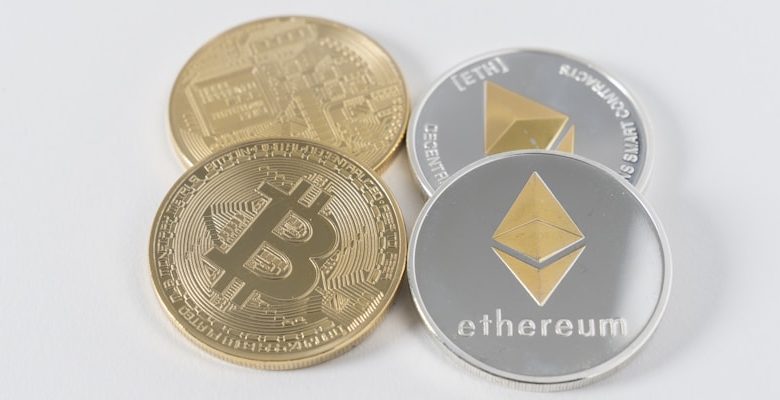How to Use Decentralized Exchanges (DEXs) Safely

- Understanding the risks of using DEXs
- Best practices for securing your funds on DEXs
- Choosing the right decentralized exchange for your needs
- Protecting your privacy while trading on DEXs
- Common mistakes to avoid when using decentralized exchanges
- Tips for safely navigating the world of decentralized finance (DeFi)
Understanding the risks of using DEXs
When using DEXs, it is crucial to understand the potential risks involved. While decentralized exchanges offer increased privacy and security compared to centralized exchanges, there are still certain risks to be aware of. One of the main risks is the lack of regulation, which means that users are more vulnerable to scams and fraudulent activities.
Another risk is the possibility of smart contract bugs or vulnerabilities, which could result in the loss of funds. It is essential to do thorough research on the DEX platform you are using and ensure that it has been audited by reputable security experts. Additionally, be cautious of fake tokens or projects with low liquidity, as they could be part of a scam.
Furthermore, users should be mindful of their private keys and never share them with anyone. Losing access to your private keys could result in losing access to your funds permanently. It is recommended to store your private keys securely offline and enable two-factor authentication for an added layer of security.
Best practices for securing your funds on DEXs
When it comes to securing your funds on decentralized exchanges (DEXs), it is crucial to follow best practices to ensure the safety of your assets. Here are some key steps to consider:
- Use a hardware wallet to store the majority of your funds, keeping them offline and away from potential hackers.
- Enable two-factor authentication (2FA) on your DEX account to add an extra layer of security.
- Regularly check for any suspicious activity on your account and report any unauthorized transactions immediately.
- Avoid sharing your private keys or seed phrases with anyone, as this could lead to unauthorized access to your funds.
- Consider using a VPN when accessing DEX platforms to protect your IP address and encrypt your connection.
By following these best practices, you can significantly reduce the risk of losing your funds to malicious actors and trade on DEXs safely and securely.
Choosing the right decentralized exchange for your needs
When choosing the most suitable decentralized exchange for your requirements, it is crucial to consider a few key factors. Firstly, assess the security measures in place to protect your assets. Look for DEXs that offer multi-signature wallets, cold storage options, and have a strong track record of safeguarding users’ funds. Additionally, consider the liquidity of the exchange – opt for platforms with high trading volumes to ensure you can easily buy or sell assets without significant price slippage.
Furthermore, take into account the user experience and interface of the DEX. A user-friendly platform with intuitive navigation can make trading a more seamless and efficient process. It is also important to check if the exchange supports the tokens you are interested in trading. Some DEXs may have a limited selection of assets available for trading, so ensure your desired tokens are listed on the platform.
Lastly, consider the fees associated with using the decentralized exchange. While DEXs are known for their lower fees compared to centralized exchanges, it is still important to understand the fee structure of the platform you choose. Look for exchanges with transparent fee policies and competitive rates to maximize your trading profits.
By carefully considering these factors, you can select the right decentralized exchange that aligns with your needs and preferences. This will help you trade safely and efficiently while enjoying the benefits of decentralization and security in the crypto space.
Protecting your privacy while trading on DEXs
When trading on decentralized exchanges (DEXs), it is crucial to prioritize protecting your privacy. Unlike centralized exchanges, DEXs do not require users to create accounts or provide personal information. However, there are still steps you can take to enhance your privacy while trading.
One way to protect your privacy on DEXs is to use an Ethereum wallet that does not require KYC verification. This will allow you to trade without revealing your identity or personal details. Additionally, consider using a VPN to mask your IP address and encrypt your internet connection.
Another important aspect of privacy protection on DEXs is to avoid sharing your public wallet address on public forums or social media platforms. Keep your trading activities discreet to prevent potential privacy breaches or targeted attacks.
Furthermore, consider using privacy coins such as Monero or Zcash for transactions on DEXs. These coins offer enhanced privacy features, such as stealth addresses and transaction obfuscation, to keep your financial information secure.
By following these tips and being proactive about safeguarding your privacy, you can trade on DEXs safely and securely. Remember that privacy is a fundamental right, and it is essential to take the necessary precautions to protect your personal information while engaging in decentralized trading.
Common mistakes to avoid when using decentralized exchanges
When using decentralized exchanges (DEXs), it is important to be aware of common mistakes that users often make. Avoiding these pitfalls can help you trade safely and protect your assets. Here are some key mistakes to watch out for:
- Failing to do proper research: Before using a DEX, make sure you understand how it works and the risks involved. Research the platform, the tokens available for trading, and any fees that may apply.
- Not securing your private keys: Your private keys are crucial for accessing your funds on a decentralized exchange. Make sure to store them securely and never share them with anyone.
- Ignoring security measures: DEXs can be vulnerable to hacks and other security threats. Take precautions such as enabling two-factor authentication and using a hardware wallet for extra security.
- Trading large amounts at once: It can be tempting to make big trades on a DEX, but this can increase your risk of losing money. Start with small trades to get a feel for the platform before committing larger amounts.
- Not double-checking transactions: Before confirming a trade on a DEX, double-check all the details to ensure you are sending the correct amount of tokens to the right address. Once a transaction is confirmed, it cannot be reversed.
By avoiding these common mistakes and staying vigilant while using decentralized exchanges, you can trade safely and protect your investments. Remember to always prioritize security and do your due diligence before making any trades on a DEX.
Tips for safely navigating the world of decentralized finance (DeFi)
When using decentralized exchanges (DEXs), it is essential to follow some tips to ensure your safety and security while navigating the world of decentralized finance (DeFi).
- Research the DEX platform thoroughly before using it to understand its reputation and security features.
- Use a hardware wallet to store your funds instead of keeping them on the exchange to minimize the risk of hacking.
- Avoid sharing your private keys or seed phrases with anyone to prevent unauthorized access to your funds.
- Enable two-factor authentication (2FA) on your accounts for an extra layer of security in case your password is compromised.
- Keep your software and firmware up to date to protect your devices from vulnerabilities that could be exploited by hackers.
- Be cautious of phishing scams and only interact with official DEX websites to avoid falling victim to fraudulent schemes.
By following these safety tips, you can navigate the world of decentralized finance with confidence and protect your assets from potential threats in the DeFi space.



